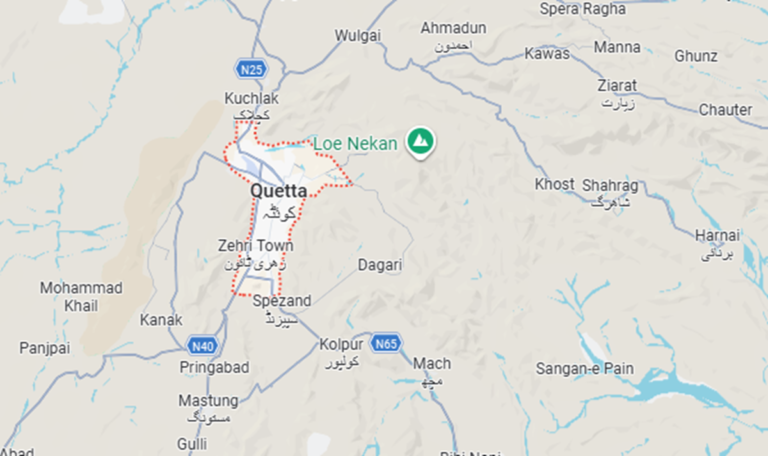The phenomenon of zero income filers with FBR has become one of the most puzzling anomalies in the taxation system. Every year thousands of individuals file returns with zero income, zero profit and zero tax due and their names are still on the active taxpayer list.
The uptick in “zero income” returns is exposing the substantial chinks in Pakistan’s tax administration, enforcement and documentation systems.
Despite the government’s repeated promises to broaden the tax base, the number of taxpayers seems unaffected or are always under siege as the FBR zero income filers phenomenon has become a law unto itself. Many will file returns simply to avoid withholding tax, or to keep their businesses on the books.
The FBR zero income filers phenomenon is about more than tax revenue, it’s about a belief system that normalizes non-compliance by presenting a facade of obeying tax regulations.
The Fantasy of a Growing Tax Base

The Federal Board of Revenue (FBR) consistently states that the taxpayer base in Pakistan is expanding. The number of registered filers increases every year – this is true. However, a sizable portion of these fires report zero income. They report no business activity, no assets, and therefore no taxes due.
This creates an optical illusion. It is also a meaningless achievement. For example, if two million people pay their taxes, and half of them report zero income, the actual base of taxpayers only accounts for half of reported filings. The issue of zero income fillers grossly discounts the gap between registration and collection of revenue.
Why Do People File Zero Returns?
The reasons are both structural and behavioral.
To Avoid Higher Withholding Taxes:
Many people file returns only to get a “filer status.” It helps them pay lower taxes on property transactions, vehicle registration, and banking.
To Show Compliance Without Paying:
Businesses file just to appear compliant, even if they don’t disclose real earnings.
Weak Enforcement:
The FBR rarely cross-checks these returns against real bank data or asset ownership.
Cultural Acceptance of Evasion:
Tax evasion is often seen as a smart survival tactic, not a crime.
This mix of motives fuels the FBR zero income filers dilemma — a system that encourages documentation without accountability.
Effect on National Revenue
Pakistan’s tax-to-GDP ratio has stayed low for several decades. The situation worsens when fake or zero declarations inundate the system. For a developing country that faces debt, inflation, and budget deficits, every lost rupee counts.
When FBR zero income filers dominate the data base, the state loses billions of potential revenues. Legitimate taxpayers see inequity in their contributions while habitual tax evaders enjoy the services of the state without paying their fair share. This inequity breeds resentment and weakens the public’s trust in tax collections as a public institution.
The Role of FBR’s Weak Data Integration
One of the biggest reasons behind this problem is the lack of data integration across institutions. FBR’s databases do not seamlessly connect with banks, property registries, and utility companies.
For example, someone might file a zero-income return but own multiple properties or drive luxury vehicles. If FBR had real-time data access, such contradictions would immediately flag investigation. However, the absence of automatic data matching allows zero filers to escape scrutiny.
Countries like Turkey and Malaysia use integrated tax databases. In Pakistan, progress has been slow due to bureaucratic hurdles, political interference, and outdated technology.
Fake Filings and the Compliance Myth
In theory, a rise in the number of filers indicates better compliance. In practice, it often means more fake returns. Tax consultants and digital filing agents submit thousands of returns on behalf of individuals who may not even understand the process.
Some consultants file zero returns for clients just to maintain active status. As a result, the number of “active filers” increases each year, but the total tax collection does not. The FBR zero income filers trend shows how compliance has turned into a numeric illusion instead of genuine documentation.
How the System Rewards Non-Compliance
Ironically, the system indirectly rewards people who manipulate it. A person who files a zero-income return can enjoy the same benefits as someone who pays millions in taxes. Both are treated as “filers.”
This sends a dangerous message: filing is enough — paying is optional. It also discourages honest taxpayers who see no visible reward for their contribution. Without reform, the FBR zero income filers culture will continue to undermine credibility and compliance.
Effects of Economic Zero Filing

The consequences of zero filings extend well beyond the fiscal amounts lost.
- Economic Data Distorted: National level statistics drawn from fraudulent filings analysis can provide misleading signals to policymakers.
- Lower Confidence Among Investors: Investors are reluctant to believe in a legitimate economy where tax cheats are allowed to flourish.
- Breakdown of the Social Contract: When taxpayers fail to pay taxes and are not required to pay, citizens experience a loss of trust in the system – it is not fair for some who can afford to pay not to pay.
- Higher Inflation and Borrowing: The government will borrow more to account for the revenue loss, causing some additional inflation.
The bottom line is that the FBR and zero income filers deadlines is not just a tax issue – it is an economic risk.
Necessary Changes
Pakistan’s tax reform should have more than just symbolic registration. Here are steps to resolve the system:
- Data Linkages: Linking the FBR with NADRA, the banks, and authorities responsible for your assets to detect false claims.
- AI-Driven Analytics: Utilize data analytics in the form of artificial intelligence to identify unusual filing behavior in instances of zero filings.
- Incentivize Real Taxpayers: Provide real rewards for those taxpayers that file and make an effort to pay taxes; rather than just paying the minimum it takes to file.
- Public Awareness: Shift the public’s mindset that simply filing a zero return equals tax compliance.
- Tough Enforcement: Implement heavy penalties for habitual zero filings, with no intended use for the returns.
Only through the above structural change, can Pakistan transition from a filing-based culture to a payment-based tax culture.
Drawing from Regional Examples
India:
Utilizes the linking of Aadhaar-PAN for cross-verifying income and assets. An inconsistency automatically triggers an audit
Indonesia:
Developed a digitized taxpayer system called DJOnline, eliminating fake filings 60% over the last five years.
Bangladesh:
Rollout real-time reporting for businesses; now collecting 40% more income tax than Pakistan with a smaller economy.
All these countries would reduce the FBR zero income filers by 50% in three years if Pakistan implemented a similar approach to automation.
FBR’s Responsibility and Reforms
FBR officials often defend themselves by highlighting capacity issues and lack of political will. While these concerns are valid, the organization must still act decisively.
Recent efforts like the Track and Trace System for tobacco and sugar industries show potential. However, unless similar digital transparency tools reach personal income tax monitoring, the FBR zero income filers trend will persist.
Reform must start from within — cleaner internal audits, performance-based evaluations, and accountability for tax officers.
Learning from Global Examples
Countries like Indonesia and Vietnam once faced similar problems. They resolved them by linking all national databases — ID, bank, property, and tax — into a single digital platform. Citizens couldn’t declare zero income if they owned a house, car, or business.
If Pakistan applies this model, it can cut down false returns dramatically. Technology is the key weapon against the FBR zero income filers challenge.
The Political Angle
Tax evasion in Pakistan is not just an administrative flaw; it’s a political issue. Many influential individuals and businessmen have the power to resist enforcement. Political leaders often avoid tightening tax rules that could upset their voter base.
Without political courage, even the best reforms remain on paper. To tackle FBR zero income filers, policymakers must lead by example — declaring full income publicly and paying due taxes themselves.
Public Trust Issues and Perception
Regular citizens feel that personal taxes are wasted. This phenomenon leads to non-compliance. They say “Why should we pay? Nothing is changing.”
The FBR must invest in rebuilding public trust via transparency. After publishing a yearly report on how taxes are spent, citizens should start feeling more confident. The more they see results — better roads, schools, and hospitals — the more they are likely to contribute truthfully.
Until that trust is repaired, those – “zero income filers” – with the FBR will continue to be a visible result of public disenchantment with the system.
A Way Ahead
Addressing the FBR zero income filers problem will require more than enhancements to the system–it will necessitate a change of ethics. Pakistan must transition from a culture of avoidance to a culture of participation.
- Accountability: Every return must be substantiated through data.
- Simplicity: Enable easy filing and payment through mobile apps and automatic deductions.
- Equity: Enforce standardized penalties regardless of status. When compliance is easy and rewarding, citizens will file truthfully.
Faqs About FBR Zero Income Filers
Who are FBR zero income filers?
They are taxpayers or their agents that submit returns declaring zero income, no profit, and no tax to pay, but are still considered active taxpayers.
Why does FBR retain zero income filers?
The FBR does not have a data verification system. Most returns are never reviewed due to a lack of resources and technology.
What is the impact of zero income filers on the economy of Pakistan?
Zero income filers add to the number of compliant taxpayers, while reducing potential revenue to be collected by the government — leading to increased loan borrowing and reliance on indirect taxes.
What can be done to reduce false filing?
Linking the FBR with NADRA and banks, using AI-based monitoring, and increasing penalties for those filing incorrectly can help reduce false filing.
How many zero income filers are there in Pakistan?
As of 2024, approximately 1.7 million of the 4.8 million registered filers submitted zero income returns, which is about 36% of taxpayers.
Wrap Up!
The saga of FBR zero income filers represents lost trust, insufficient enforcement, and systemic weaknesses. It demonstrates the preference of Pakistan’s tax system for numbers rather than real reflection of personal income.
Unless FBR develops digital integration, transparency, and strict penalization of legislators, the gap between good faith reported income and true income will continue to expand.
READ MORE: Top-10 Tax Free Countries in the World 2025
Real progress will not be made, unless millions pay taxes – not millions file returns. Only then will the story of zero income filers turn into a tale of success of real reform.







